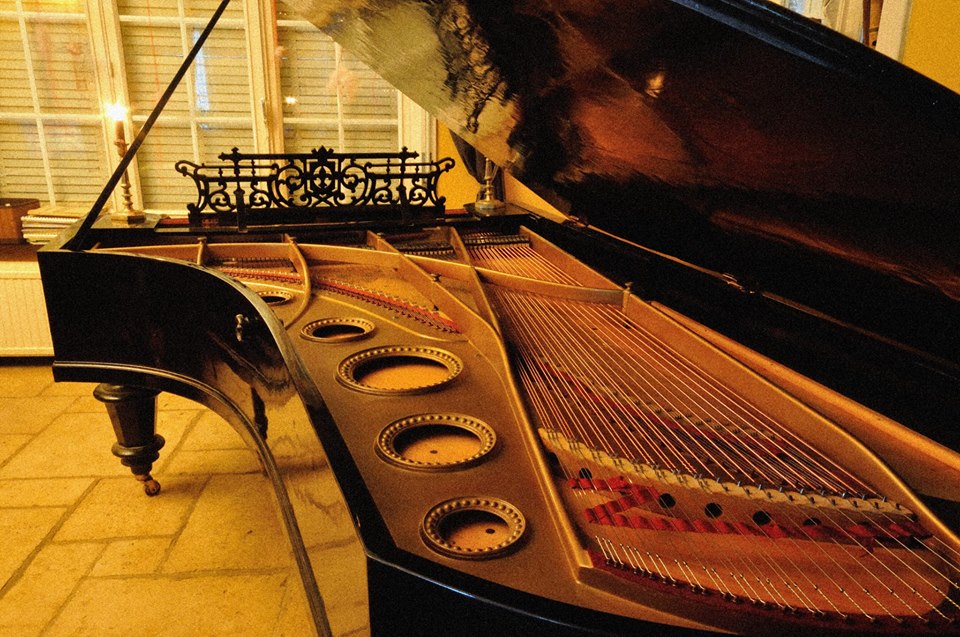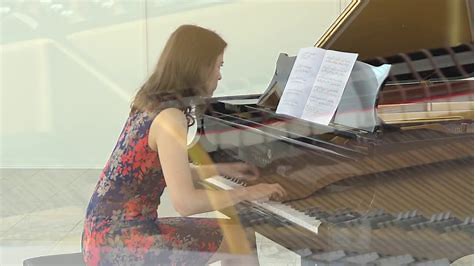About
Music is a way to enjoy a better life and experiment with deeper feelings.
Born in Louvain on 5 March 1962. From 1980 to 1986: Musical training at the academy of Verviers, then at the conservatory of Liège. Seminar of Jazz of Liège. From 1982 to 1987: Practice of jazz in multiple formations, and multiple recordings in studio as pianist, arranger and composer; Practice of the classical repertory; Some compositions of film music. 1987: Resolutio (op. 1) : play on Christian esotericism for saxophone soprano, string quartet and choir of women; Canciones entre el alma y Christo su esposo ( play 2) : play on the Spiritual Song of Saint John of the Cross for guitar, tenor and three female voices; Requiem (Op.3) : piece on the Gregorian Requiem for tenor and string quartet 1989: creation in Liège (Saint-Barthélemy church) of op. 1, 2 and 3 by Jean Belliard, Steve Houben, the Manouilov quartet and the Manouilova choir. 1991: La Cantate à Trois voix (Op. 4) : on the homonymous poem of Paul Claudel for three women voices and mixed quartet, created in Brussels (Madeleine church) under the direction of the author. 1993: Les Chansons de Bilitis (op.5) : on poems by Pierre Louÿs for soprano and piano, created in Verviers by Charles Loos and Anne Poskin. The Garden of Bilitis (op.6) : for saxophone soprano and piano. The Tomb of Bilitis (op.7) : for saxophone soprano and orchestra. 1994: Registration of op. 5, 6 and 7 with the help of the Ministry of Culture of the French Community of Belgium (Steve Houben, Charles Loos and Anne Poskin). 1995: The Soul and the Dance (op.8) first version: on the homonymous poem of Paul Valéry for three voices of high-cons and soprano; Aurore (opus 9) : on the homonymous poem of Paul Valéry for three voices of high-cons and harpsichord. 1996: Symbolic Love (Opus 10) : cycle of melodies on symbolist poems by G. Apollinaire, S. Mallarmé, S. Collin, L. Labé, F. Jammes for piano, violin, violoncello, lute, Viola da gamba and soprano , written with the support of the Ministry of Culture of the French Community of Belgium and created by Ensemble Musiques Nouvelles in 1998 in Brussels; Trio (op 11) : for piano, violin and cello, created by Stéphane Collin, Manu Hermia and Sigrid Vandenbogaerde in Liège in 1996. Recording of op. 10 and 11 in Bolland. 1998: Prelude and Sonata (op. 12) : for piano. 1999: Artistic direction of the recording of the disc "The Pavilion of Human Passions" of the group Julvernes; La Première Chanson d'Eve (Op. 13) : on poems by Paul Claudel, Stéphane Collin and Charles Van Lerberghe for soprano, piano and violin, written with the support of the Ministry of Culture of the French Community of Belgium and created by Isabelle Aubier, Éric Mélon and Anne Loubry in Brussels. 2000: Regina Caeli (op. 14) : for soprano, piano and orchestra; Created and awarded at the international competition of composition "Regina Caeli" in Verviers. From 1994 to 2000: writing of a novel motivated by the discovery of an Italian Baroque manuscript and related musicological research. Revision of the score ( Amen a cinque voci del sig. Niccolò Antonio Zingarelli ) and check in Villers-la-Ville with members of the orchestra of the Mint and five singers (Anne Horbach, Anne Loubry Michel Powerful, Stéphane Van Dijck And Thierry Vallier) under the direction of Stéphane Collin. Published by Irezumi. From 2000 to 2004: various arrangements for string orchestra (Gilbert Montagné, An Pierlé). Collaborations with Ensemble Musiques Nouvelles (project Leo Ferré, Philip Glass, 40 th anniversary). 2004 Hell in three movements (op. 15) : jazz quartet (soprano saxophone, piano, Hammond organ and drums) and orchestra (strings, two trombones, trumpet and percussion), commissioned by the Ensemble Musiques Nouvelles, writing With the support of the Ministry of Culture of the French Community of Belgium. 2005: creation and public recording of op. 15 by Charles Loos, Paul Flush, Luc Vanden Bossche, Fabrice Alleman and Ensemble Musiques Nouvelles directed by Jean-Paul Dessy, in Mons. Recording of op. 8 revised (addition of a string quartet and a piano) by Stéphane Collin, Jean Fürst, Nele Peeters, Eric Robberecht, David Nuñes, Dominica Eyckmans and Jean-Pol Zanutel. 2006: Two Minutes : for chamber orchestra and electric guitar, control the Belgian Media for its 50 th anniversary, created by the Ensemble Musiques Nouvelles, written with the support of Ministry of Culture of the French Community of Belgium. 2007: The Gates of Hell (op 16a) and Back to Hell (Op 16b) : adaptation and amplification of Two Minutes for keyboards, electric guitar, bass, drums, samplers and virtual synthesizers. Creation and recording of op. 16 a and b by Stéphane Collin, Philip Catherine, Michel Hatzigeorgiou and Stéphane Galland. 2008: La Chute des Anges Rebelles (Op. 17): for piano, cello, clarinet and saxophone soprano, commissioned by the Ensemble Kheops. Written with the support of the Ministry of Culture of the French Community of Belgium. Created in Waterloo by Marie Hallynck, Muhidin Durruoglu, Ronald Van Spaendonck and Steve Houben. 2010: The Little Tetralogy - 2. Le Petit Oiseau (op 18) : for piano, violin, percussion, soprano voice, tenor and baritone. Commissioned by the National Dramatic Center of Montluçon (France). Creation in Montluçon by Ensemble Musiques Nouvelles, directed by Anne Laure Liégeois, with Fabrice Mantegna (tenor), Alexander Knop (baryton), Brigitte Peyré (soprano) and Lénore Chaix (actress). 2011: Wuthering Heights (Kate Bush) (op. 19): contemporary arrangement, commissioned by Ars Musica, created in Mons by Ensemble Musiques Nouvelles. Sonata No. 2 for piano and violin: commissioned by Eric Robberecht (concert meister at La Monnaie, Brussels). Creation in August 2012 by Éric Robberecht. 2012: New Music (Op. 20): piece for bass clarinet, celesta, flute, horn, trombone and percussion. Order of the Ensemble Musiques Nouvelles. Created December 6, 2012 by Ensemble Musiques Nouvelles at Studio 4 in Flagey. 2013: In the Way and on the Full Name of Brian Eno (op. 21): piece for electronics. Commissioned by the University of Liège. Sochi - Wheelchair (non opus): piece for symphonic orchestra and voice. Order for the opening ceremony of the Sochi 2014 Paralympic Games. Recorded on December 21, 2013 with Musiques Nouvelles for Musicom at the Galaxy studio in Mol.

